As a homeowner, selecting the perfect decking material for your outdoor space can be challenging, especially with so many fantastic options to choose from.
Two popular choices among homeowners today are PVC and composite decking. In this comprehensive guide, we’ll delve into the pros and cons of pvc vs composite decking, comparing their strengths and weaknesses to help you make an informed decision on what’s best for your home deck.
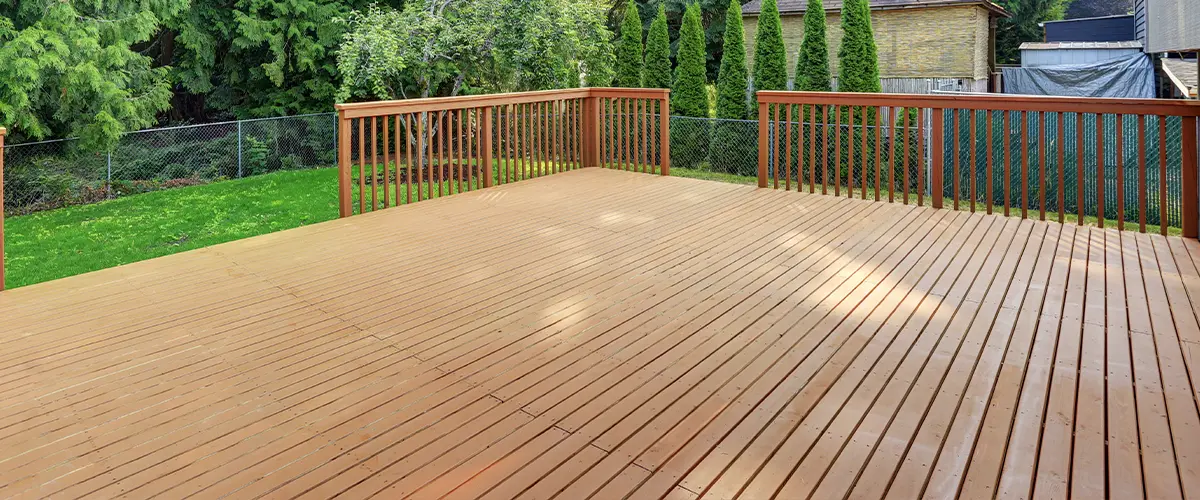
Key Takeaways
- PVC decking is a low - maintenance and durable option for homeowners, with resistance to moisture, insects, and rotting. It also has a lightweight engineered construction but fewer design options.
- Composite decking offers eco - friendliness through the use of recycled materials, consistency in appearance, and low maintenance requirements like not needing sanding or refinishing. However, it can be prone to scratches or stains and may have higher initial costs.
- Homeowners should consider factors such as budget, climate conditions, personal taste in choosing between PVC and composite decking. Both are valuable investments that enhance outdoor living experience while increasing property value with minimal upkeep needed.
What Is PVC Decking?
PVC decking, short for polyvinyl chloride, is a popular choice among homeowners looking to upgrade their outdoor living spaces. Made from 100% synthetic material, PVC decking offers unparalleled durability and low-maintenance requirements that have made it an attractive option in recent years.
One feature that sets PVC decking apart is its lightweight construction. The boards are engineered with a hollow center, allowing them to remain both strong and ultra-lightweight – perfect for any homeowner interested in DIY installation or those who want minimal impact on their existing backyard structure.
Additionally, the non-porous surface of PVC means that spills and stains can be easily wiped away with a simple cleaning solution.
In terms of aesthetic appeal, modern PVC decking has come a long way from the early days when limited color options were available. Today’s offerings come in an array of natural-looking colors designed to mimic the appearance of real wood without sacrificing performance benefits.
For example, some premium manufacturers even incorporate realistic grain patterns into their designs to provide more authenticity and character for your deck space.
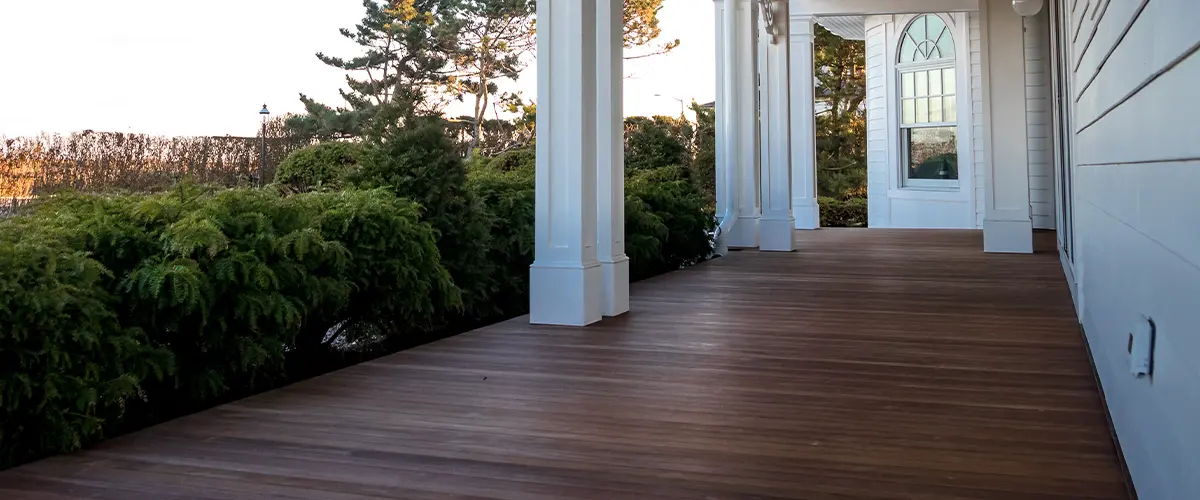
Each of these materials has its own unique set of advantages and disadvantages, so it is essential to consider your specific needs and preferences when making your decision.
Be sure to also factor in your budget, as some of these options can be more expensive than others. Ultimately, the best material for your home deck will depend on your personal taste, climate, and maintenance preferences.
At Lake City Decks, two of our favorite decking boards are Trex and TimberTech composite decking. These are low-maintenance, durable, and beautiful boards that help you achieve a self-sufficient outdoor space!
What Is Composite Decking?
Composite decking has become increasingly popular among homeowners in recent years, known for its combination of aesthetics and durability. Made from a unique blend of materials that typically include recycled wood fibers and plastics, composite decking offers the appeal of natural wood while minimizing some common drawbacks associated with traditional lumber.
One notable advantage of composite decking is its eco-friendliness – it helps conserve trees by repurposing waste products into stylish yet sturdy outdoor living spaces.
The manufacturing process involves mixing ground-up wood particles (usually sourced from sawdust or reclaimed furniture) and plastic resins (like high-density polyethylene), creating a highly resilient product without the need for logging finite forest resources.
As opposed to solid wooden decks that may warp or rot over time due to exposure to moisture or pests, composite options stand up well in harsh climates since they won’t deteriorate as quickly when faced with varying temperatures and humidity levels.
Plus, most variants are available in an array of colors so homeowners can easily match them with their existing design schemes.
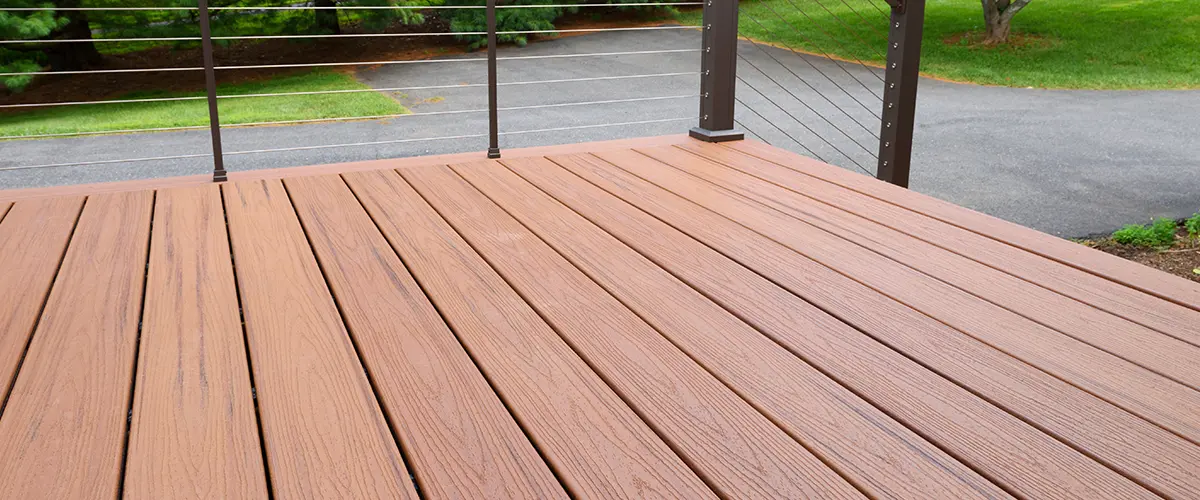
Each of these materials has its own unique set of advantages and disadvantages, so it is essential to consider your specific needs and preferences when making your decision.
Be sure to also factor in your budget, as some of these options can be more expensive than others. Ultimately, the best material for your home deck will depend on your personal taste, climate, and maintenance preferences.
The Pros And Cons Of PVC Decking
| Pros | Cons |
|---|---|
| Low maintenance | Less natural appearance |
| Long-lasting durability | Long-lasting durability Higher initial cost |
| Resistant to moisture and insects | Can become hot under direct sunlight |
| Easy to clean | Possible color fading over time |
| Eco-friendly, using recycled materials | Limited design and color options |
The Pros And Cons Of Composite Decking
| Pros | Cons |
|---|---|
| Durable and long-lasting | Higher initial cost |
| Low maintenance | Susceptible to scratches and stains |
| Resistant to rot, insects, and mold | Can be prone to warping, swelling, or fading |
| Available in various colors and styles | Not as eco-friendly as natural wood options |
| Consistent in appearance | Can become hot underfoot in direct sunlight |
| Easy to install with hidden fasteners | Some homeowners may find the material less attractive than natural wood |
In summary, composite decking offers a durable, low-maintenance, and visually appealing solution for homeowners interested in expanding their outdoor living space. However, its higher initial cost, susceptibility to damage, and potential environmental impact should also be carefully considered before making a decision.
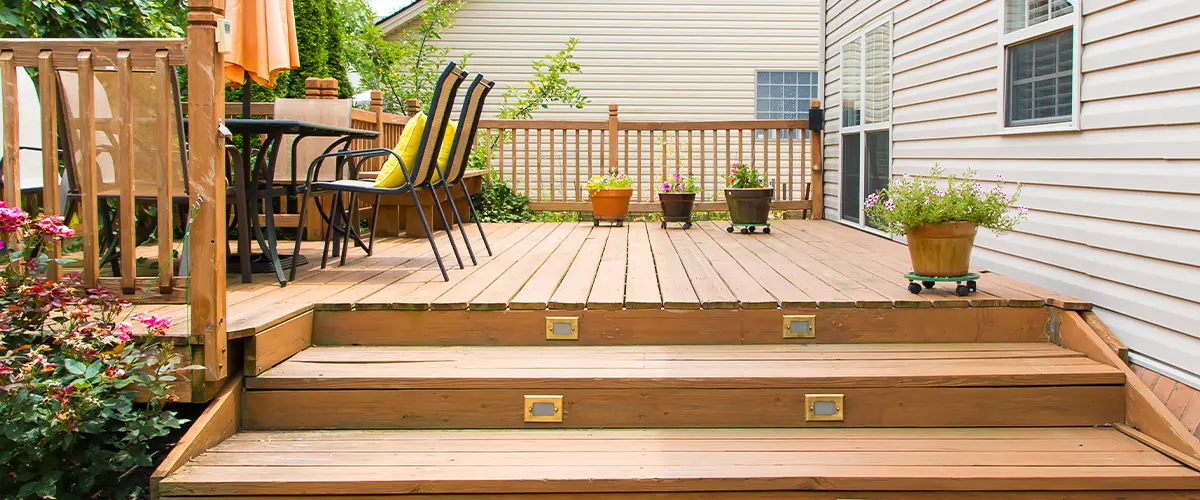
The Benefits Of Having A Home Deck
1. Increases Home Value
2. Provides Entertainment Space
3. Enhances Outdoor Living Experience
4. Offers Versatility
5. Low Maintenance
PVC vs Composite Decking FAQs
Conclusion
When it comes to choosing between PVC and composite decking, homeowners need to carefully consider their needs and preferences. While PVC decking is generally more durable and low-maintenance, composite decking offers a wider range of styles and colors.
Ultimately, the best choice will depend on factors such as budget, climate conditions, and personal taste. No matter which option you choose, adding a home deck can enhance your outdoor space and increase the value of your property.
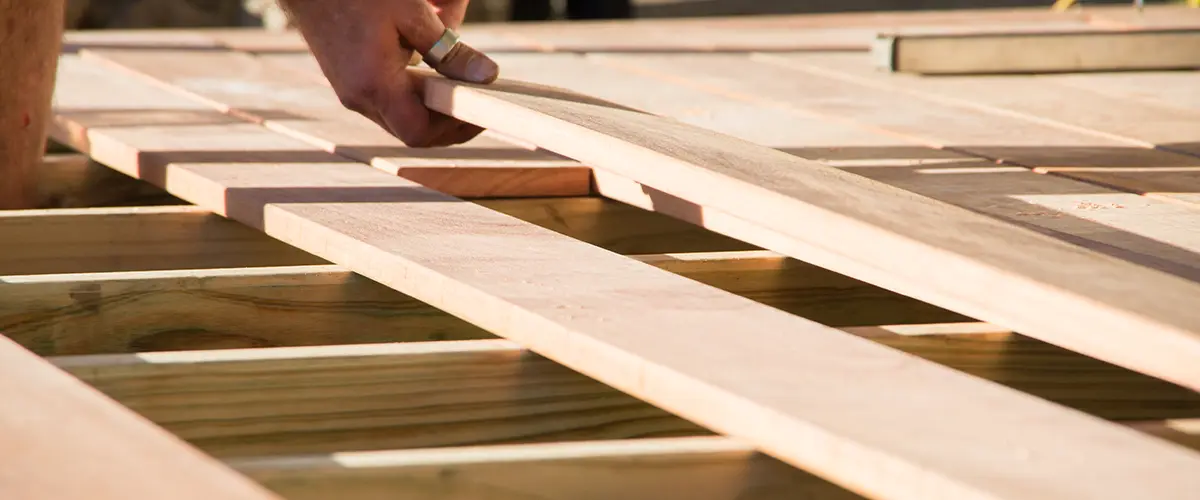
With Lake City Decks, you can be sure you’ll get the best deck in the neighborhood! We focus on your needs and preferences to give you an outdoor space that completely satisfies your needs!
If you’re ready to start your project in Madison, Monona, Maple Bluff, and more of Dane County, WI, give us a call at (608) 839-0620 or request a free quote now!
